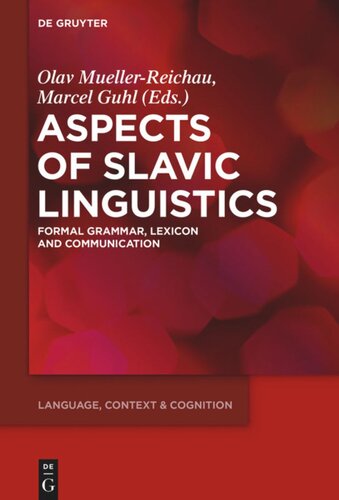

Most ebook files are in PDF format, so you can easily read them using various software such as Foxit Reader or directly on the Google Chrome browser.
Some ebook files are released by publishers in other formats such as .awz, .mobi, .epub, .fb2, etc. You may need to install specific software to read these formats on mobile/PC, such as Calibre.
Please read the tutorial at this link: https://ebookbell.com/faq
We offer FREE conversion to the popular formats you request; however, this may take some time. Therefore, right after payment, please email us, and we will try to provide the service as quickly as possible.
For some exceptional file formats or broken links (if any), please refrain from opening any disputes. Instead, email us first, and we will try to assist within a maximum of 6 hours.
EbookBell Team

0.0
0 reviewsThe present volume offers a selection of papers on current issues in Slavic languages. It takes stock of the past 20 years of linguistic research at the Department of Slavic Studies at Leipzig University. Within these two decades, the scientific writing, teaching, and organization done in this Department strengthened the mode of research in formal description of Slavic languages, formed another center for this kind of linguistic research in the world, and brought about a remarkable amount of scientific output. The authors of this volume are former or present members of the Department of Slavic studies or academic friends. Based on the data from East, West, and South Slavic languages, the papers tackle issues of all grammatical subdisciplines in current models of description, compare parts of the grammars of Slavic languages, explain categories and phrases in Slavic languages that do not exist in present-day Indogermanic languages of Western Europe, and propose ways how to update the standard of lexicography in still less described Slavic languages. A study of language competence is dedicated to the actual requests on heritage speakers and shows how their abilities can be evaluated.